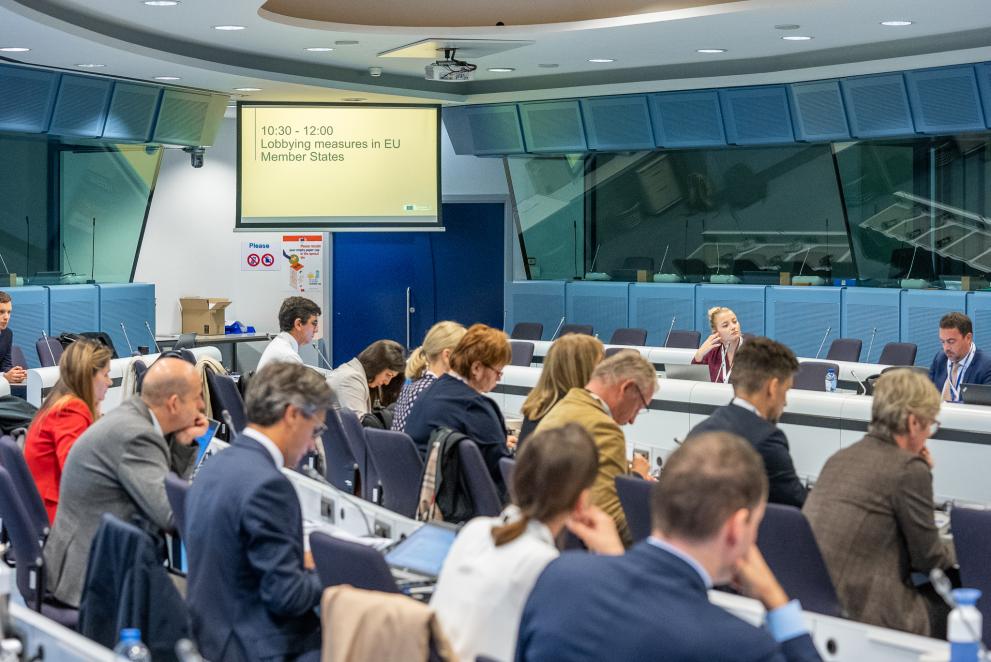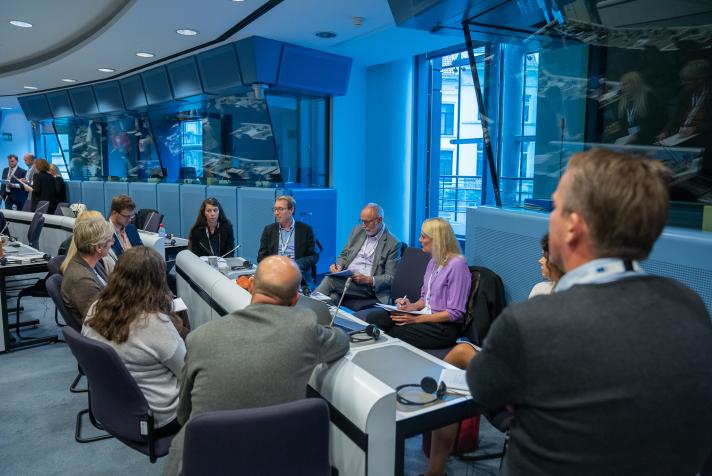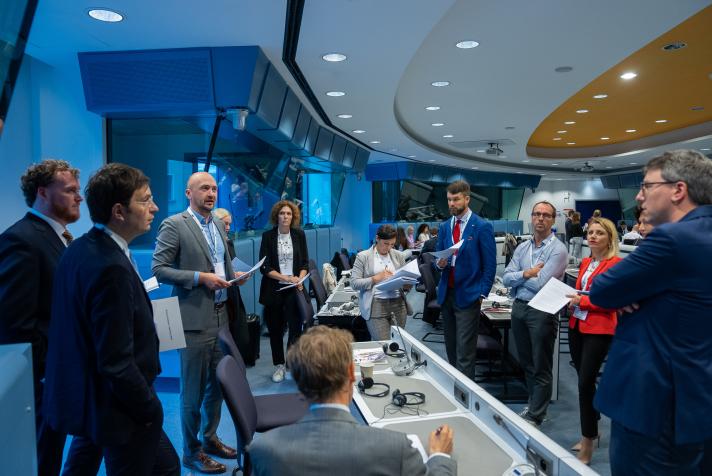
This year’s workshops was the first physical workshop since the outbreak of the COVID-19 pandemic bringing together representatives from:
- 19 EU countries
- Commission services
- the European Ombudsman
- parliamentarians
- lobbyists
- academia
- civil society
- and experts of the network of Local Research Correspondents on Corruption (LRCC)
Participants discussed topics surrounding lobbying corresponding to the workshop’s title: “Lobbying in Europe: balancing public interest and privileged access”.
Lobbying is a legitimate and lawful act to influence public officials. However, it needs to be accompanied by strong requirements of transparency and integrity to ensure accountability and inclusiveness in decision-making. Several EU countries have regulated lobbying, like introducing a mandatory transparency register of lobbyists, while others have no regulation in place.
Lobbying is one of the topics covered by the Rule of Law Report’s chapter on anti-corruption. In the 2022 Rule of Law Report, the European Commission has provided Member States for the first time with recommendations. For 15 EU countries, there has been a recommendation to better regulate lobbying.
From real-life examples to fictional cases: How is lobbying regulated across the EU
The workshop was opened by Ute Stiegel, Acting Head of Unit: Enforcement, Transparency and Rule of Law Monitoring at DG HOME. Representatives of EU countries discussed the lobbying regulatory systems in France and Lithuania. Both systems were presented in detail explaining the transparency registers, legislative footprint, the registration obligation and enforcement, and sanctions. Participants also discussed the particularities and challenges of drafting and implementing legislation on lobbying in their EU country.
Discussions between EU countries with civil society, public affairs and business organisations focused on transparency in lobbying. Panelists included:
- Mr. Sven CLEMENT, member of Parliament in Luxembourg
- Mr. Christian FEUSTEL, senior policy advisor for BusinessEurope
- Mr. Stefaan FIERS, the president of BEPact
- Mr. Olivier HOEDEMAN, research and campaign coordinator at Corporate Europe Observatory
Discussions focused on the degree of transparency needed in interactions with lobbyists; the definition of who is a lobbyist; if there can be “too much” transparency and the role of unethical lobbying. Participants illustrated their points with concrete examples concerning the EU, Belgium and Luxembourg.
The workshop also discussed three fictional cases on lobbying and lobbying regulation in smaller break-out groups, to more concretely apply lobbying legislation and regulation in practice. The case studies covered issues such as influence through attendance of public officials at a company-sponsored event; influencing public decisions in private environments between friends and the registration of informal meetings in a transparency register.
Key takeaways and next steps
A key takeaway from the workshop is that there exists no single solution that would fit all with regards to lobbying regulation. Rules need to be adapted depending on the situation in each country. It is important to raise awareness about lobbying among public officials and citizens. Lobbying remains a legitimate act, but integrity and accountability need to be ensured, and all associations and stakeholders should have a level-playing field. The European Commission will continue to advocate this topic, in particular in the context of the Rule of Law Report and the follow-up of various recommendations addressed to EU countries.
A future workshop, on the topic of criminalisation of corruption, will be foreseen for 14 December 2022.
Details
- Publication date
- 17 October 2022
- Author
- Directorate-General for Migration and Home Affairs


